While preparing the transcript and embedding links and photos to some of the topics I discussed with Patricia Wolf, I was struck by the variety of subjects I was looking up on my Google searches: 19th century flâneurs walking turtles through Paris; risks to migratory bird paths; ambisonic microphones and synthesizer manuals…such is the kind of ground you’ll cover when speaking with someone like her: a Portland, Oregon-based musician, DJ, field recordist, sound designer, soundtrack composer, event organizer, and birder, among many other possible titles.
I first met Patricia back in 2018, while on tour in Portland with Hotel Neon. She played a beautiful set that night, but the thing I remember most was just how friendly and accommodating she was before and after the show. We left the venue feeling like we’d made a genuine connection there - this isn’t always the case on tour, when days blur together and names can be forgotten, but it was pretty apparent that her combination of approachability and talent was a break from the norm. It makes perfect sense that she’s become a crucial part of the Portland experimental scene as both performer and promoter.
As both an advocate for nature and an artist looking to create a more inclusive and welcoming music scene in Portland, there’s a sense of earnestness and care behind her work that I find really refreshing. I think you can hear this come through during our varied, hour-long conversation here, and I’m glad to have the opportunity to share it with you.
Here’s the full transcript of my interview with Patricia Wolf. I spoke with her over videoconference from her home in Portland on the evening of Wednesday, March 20.
Please visit https://patriciawolf.bandcamp.com to purchase her music.
Transcript
Sound Methods 006 - Patricia Wolf
Welcome back to Sound Methods. I'm pleased to share an interview with my friend Patricia Wolf, who I first met while on tour with Hotel Neon in 2018. We've kept in touch ever since, and I was glad to have her on the show.
Patricia Wolf is a musician, sound designer, field recordist, and DJ residing in Portland, Oregon. Her work sonically unites the natural and modern worlds, integrating ecological sources and field recordings into minimalist compositions. She uses melody and repetition to create. hypnotic inner spaces, conjuring vivid textures and atmospheres filled with emotion.
As a sound designer, she's worked for Novation building presets for the Peak and Summit synthesizer lines, alongside designing sounds and soundtracks for educational video games and interactive VR environments. Her DJ mixes have been featured on Worldwide FM, DubLab, Crack Magazine, and many others, and her own music has been covered in publications such as The Wire, Resident Advisor, dazed digital, and edition of contemporary music. She's performed in forward thinking club spaces in Berlin, Barcelona, and all over the world, and in spring 2023, she toured the Pacific Northwest in support of legendary folk musician Bonnie Prince Billy.
Wolf is also the co founder of Variform, a gallery and curatorial organization that focuses on sound art and modern composition. She's now booking and promoting shows with a new group called Moment. She's a recipient of the Precipice Fund, a grant funded by the Andy Warhol Foundation for the Visual Arts.
Her debut album, I'll Look for You and Others, was released in February 2022 on Past Inside the Present, and was quickly followed up by a second LP called See-Through, which was released on the Catalan label, Balmat.
I'll apologize for my voice on this episode, as I was a little under the weather at the time of recording and it's a little more nasally than normal. But nevertheless, I hope you enjoy my interview with Patricia Wolf.
—
Andrew: All right, Patricia Wolf, thanks so much for being here on Sound Methods.
Patricia: Thanks for having me.
Andrew: Of course. I've wanted to have this conversation for a while, and you're one of the first people I thought of when I started doing this because I think you have a very interesting perspective, and also I've just always enjoyed our time together anytime we've had a chance to play shows. It's always a good time, so looking forward to the conversation here.
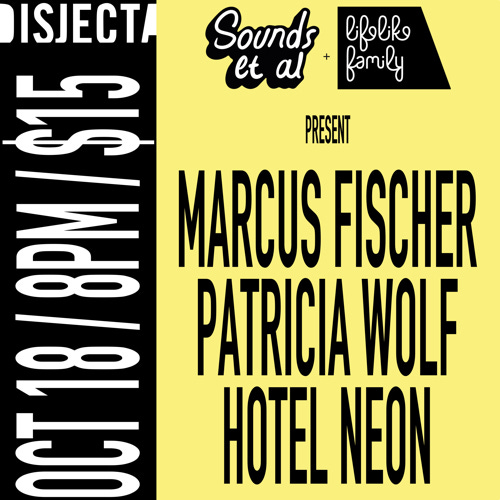
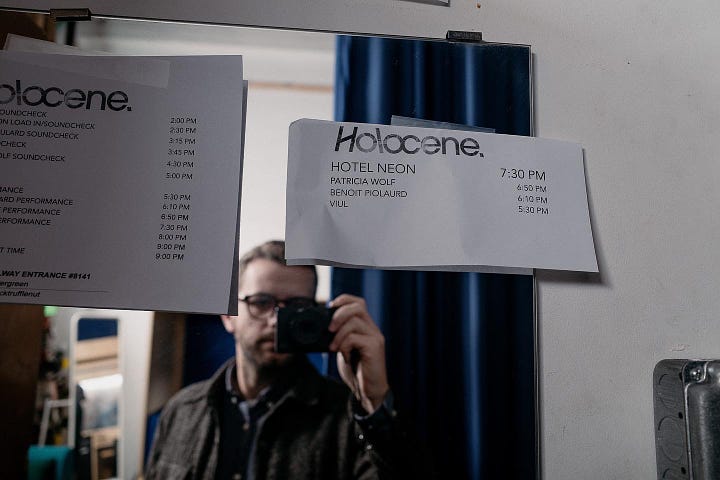
I think I'm going to start with one of my favorite Patricia stories, and it's actually not musical at all, but I think it's pretty indicative of how approachable you make yourself and what a great human being you are. I think we were talking one time on Instagram; there was a news story where a huge number of birds were colliding with buildings in the - I think it was the Chicago skyline. But we were exchanging messages about this, and I can't remember how it came up to start with, but at the end of that conversation you offered to send me a pack of free window stickers in the mail to prevent bird collisions on my back door.
I don't know, I thought that was just a really nice gesture, for one, but also it kind of revealed for me…for anyone who follows you on social media, it's pretty obvious that you have a deep interest in ecology and conservation. And I'm wondering if that influences the rest of your artistic life, if at all? How does the natural world figure into your life as a musician, and is it a direct source of inspiration for you? Or is it something that's more intangible than that? I'd be curious to hear your perspective on this.
Patricia: It is a direct source of inspiration, and it's really coming to envelop my art output.
I would say when I first got started with music, which was quite a while back, that wasn't an inspiration for what I was doing. But in the last several years - I think it really started with my field recording practice, with just noticing the changes that are happening in the world with the climate and with our cities kind of just taking over everything, and seeing clear-cut [destruction]. Living here in Oregon, you can go to the coast or go on a trip into nature and see all of this clear-cut devastation and it's just really hard to look at, especially when you know how much wildlife are suffering, and how much our planet is suffering, because of how humans are mismanaging a fair exchange of energy from the planet. And so, I don't know, that's something that I think about more and more every day.
With field recording, it's really made me pay closer attention to sounds - nature sounds and also the anthropogenic ones, the ones that humans make - and I get really frustrated when I'm field recording and I'm trying to capture nature sounds, and I just hear cars or airplanes or factory sounds. Those sounds can be really cool, too, but when you're not going for that, it gets annoying, and you realize how difficult it is to actually find a pristine environment where those sounds are not present. It leads to other things…I read a lot about ecology and specific species, and it’s become a passion. Of course, when you have a passion, I feel like it naturally finds its way into your artistic expression.
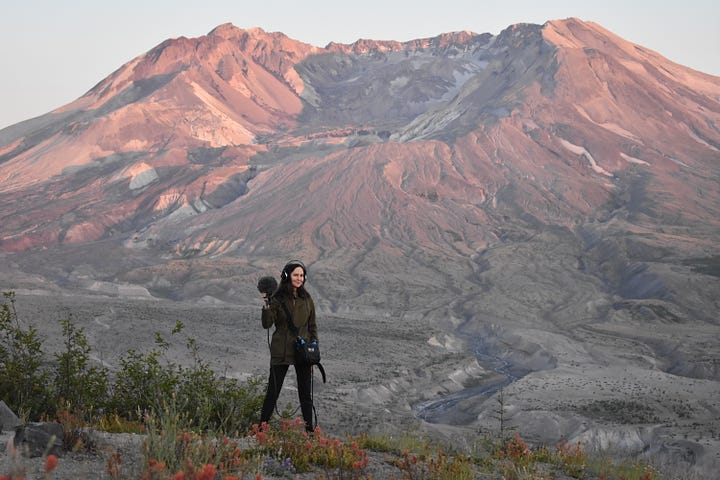
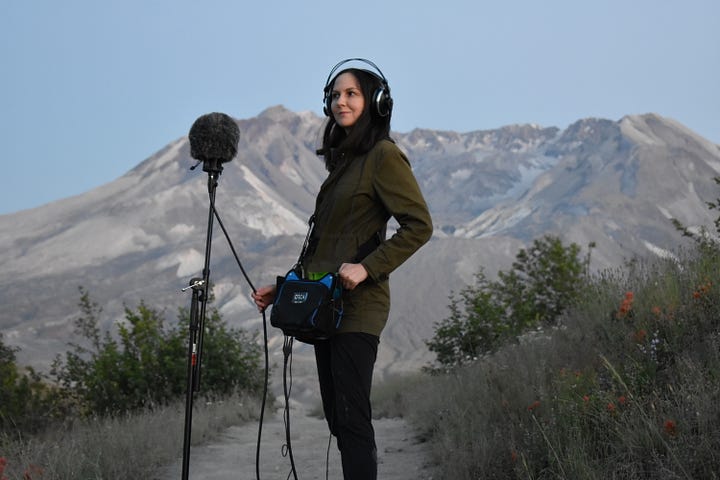
Andrew: Yeah, exactly. That leads into a couple other questions I have, but your comment about the anthropogenic noise leaking into recording opportunities…it drives me nuts sometimes. I mean, I live in Philadelphia, so it's a huge city to begin with, but as someone really interested in field recording too, it's shocking how loud the world is. And it makes me think of that - I think it was Gordon Hempton, he came out with that documentary recently about “One Square Inch,” I think it's called…I'll have to look it up and correct myself if I'm getting the title wrong here, but just this search for the quietest spot in America, or North America, I should say, and how difficult that is. Even when you think you've found the quiet spot, you've got planes flying overhead that you didn't expect…silence is such a rare thing these days, so I really resonate with that.
But you brought up field recording, and that's actually a question that I had on my list here to ask you about. It seems to be taking on a bigger role in your artistic practice, and you kind of alluded to it there. You've even got several recordings up on your Bandcamp page now.
So I'm wondering if you could talk a little bit about how you picked up that practice to begin with, and how you're approaching it today. I’ve had this conversation with other artists who utilize field recordings, and I'm always interested to hear how they're incorporating it into their work: is it just a documenting of moments to look back on? Is it collecting sounds for additional manipulation? Or a little bit of both?
Patricia: When I first got started with field recording…that was in 2019. I got a little more serious about it [and got] a really nice microphone and a recording device, whereas before I would record sounds on my phone. I liked those sounds, but I knew that they weren't the best quality so I decided to take it a little further. I'm trying to remember what prompted me to go into this, but I think it was just a combination of hearing other artists and field recordists presenting their work, and just really loving the hyperreal immersion into an environment and realizing that that's a really interesting audio experience. I just wanted to explore that. Once you do it, I mean…it's a classic story, and I see it unfolding when I take my friends out field recording for the first time: it's just this amazing experience where all of a sudden, you have this superhuman hearing and you just feel drawn to the present moment. You feel alive and really excited about the world you're in, but seconds before, you maybe didn't read it as being anything special or interesting. I like how it helps you just take a look around you and be there in that present moment, and just see how special and amazing it is. It’s very life affirming.
And I think it can take you out of your head too. Whether you're just out wanting to collect sounds for the fun of it, or if you're having a rough time and you just need to get out of your head, I think it does a really great job at that.
It's hard now because it's a little less new to me than it was, and so I kind of forget [what it felt like] and things just kind of pile on. And what's interesting about my field recording practice now is I've noticed that, before, all I wanted to do was just go out and record sounds constantly. It was all about getting these sounds, and now it's really about learning more about the subjects that I want to record. And that's something that I consider part of the field recording practice, is learning about your environment, learning about the ecosystem and how everything works together, and learning about how to be responsible. I don't want to go to some place where I know a particular species is going to be, making sound, and I don't want to disturb their life in a negative way, which can definitely happen with humans, which are read as predators in a lot of cases. They can make them leave their nests, leave their young just for survival, and that can make their young vulnerable. It can expend energy that they may not have, and so…and then you learn about how to interact in those environments in a respectful way, but also to get what you're looking for, because every organism has conditions for how it lives. Understanding what those conditions are - the season, the companion species, whether they're plants or fungi - I'm just learning about all those things.
It's an endlessly fascinating experience. Maybe it's a ground nesting bird that you want to capture the sound of: “well, be careful when you're walking around there [because] you don't want to step on the nest, and they're usually really well camouflaged.” These are all things that are part of my practice now that I've been really enjoying, and so it doesn't only make me a better listener to be a field recordist, it makes me a more respectful member of this global community of living things. I love that about it. I think that deep listening, or careful listening, naturally brings people there.
That’s a big goal of mine: through this work, whether it's through the music or through the field recording, [I hope] that I can make people a little more sensitive to the world and maybe a little more careful with it.
Andrew: Yeah, I love that. You said how you start field recording and you instantly just want to go out in the world and listen to everything you can, and capture everything. It does start to change the way that you view the world when you're paying attention to everything in such a conscious, active way. It's fascinating to see what you didn't notice before, and eventually you start to find, like you said, things you want to hone in on further and explore. That's such a good summation of it.
When it comes to field recording that you've done in the past, correct me if I'm wrong on this, but I know you released a set of recordings that you made near the Mount St. Helen's sites and I think for that experience, you were using an ambisonic microphone. Did that experience change the way that you listen at all? I've not had the opportunity to use one myself, but I would just be curious to hear what kind of effect that had when you were going through that process for “Life on Smoking Mountain.”
Patricia: Well, that was the first microphone that I got. The first professional microphone I had was the ambisonic microphone, and at the time - that was when my partner and I had a sound art gallery called Variform and we were able to do multi-channel presentations, and so the idea was that I could use the recordings with that microphone to have [multichannel installations]. I think we had six speakers up.
And the ambisonic is first order ambisonic, so it would record in four channels and give a four channel polywave. But we don't have that space anymore, and we don't have that system anymore, so it's been kind of funny to have that. I can always bounce it down to stereo, and that's what I did for the release because I don't…I guess I could put the files up if somebody wanted to play it back in first order ambisonic on their personal system. People can write to me and I could try to find those files. That was a few years ago, so I don't have them readily available. I really need to get better at storing my files. But maybe the next time, yeah, if I use that microphone on something new, I'll make those available and perhaps someone can experience them the way they were recorded.
But listening back to it was an incredible experience, because it's like a binaural type of playback, and it was just so vivid. It really does truly feel you're there and the spatialization of each sound is just more vivid and more realistic. I loved working with it, I just think that I've found that it's not the most practical thing for what I've been doing because I'm not actually, sharing those sounds, those recordings, in the way that they were recorded. But I love having it.
I got that microphone not too long before the pandemic started, and the idea was that there'd be opportunities to show these sounds - perhaps in a gallery or in Variform - but the world kind of shut down for a while. It really is like a site-specific thing. Most people don't have an ambisonic playback system, so the idea was that people could gather somewhere and listen, and that just didn't work out that time.
Andrew: Right. I'll definitely include a link to it in the write up that accompanies our audio here, but it's an amazing recording. I mean, it really does convey a strong sense of place.
And that's kind of the point that I wanted to pivot to in my next question here, is that, whether it be a sense of place through your field recordings, or even on your more musical output, all of the things that you’ve released have very strong - at least to me, when I listen to it and when I read the liner notes that accompany them - they have a very strong narrative element to it. Your record “I'll Look For You In Others,” for instance: that came out of a horribly tragic event with someone passing away, but then the liner notes for “See-Through” talk about this very different kind of mindset that you were in at the time. And with both of those albums, the stories that you're telling there really come through, I think.
And so I'm wondering how you approach your musical projects in terms of narrative behind it. Do you need a theme or a story to latch onto in order to feel motivated or inspired? Or is that just something that comes out later in the process for you? Like, you start to get ideas down and you key in on an idea that then takes root. How does that process work for you? I'd be really curious to hear.
Patricia: It always reveals itself to me later. I find that I'm working on music and there will be a theme that emerges that I'm not conscious of, but it's definitely a product of where I am in life and what I've been thinking about and how I'm feeling. That's one of the cool things about my music practice; it tells me a lot about me that I may not be noticing in a cognitive way, and it kind of is a mirror. It says, “this is what is going on in your mind, and this is how you're feeling.” And I can sometimes see a theme: it could be really broad, but it gives me an opportunity to see how I may be growing or changing over time.
I just finished a new release for my friend Penelope Trappes's label - her label is called Nite Hive - that is going to come out in June, and that whole release is all about music inspired by birds.
Andrew: I love it.
Patricia: I've learned a lot about birds in the last couple of years, and it's been a big passion of mine. I don't know how many people will be able to connect with it, but at the same time, it is music, and I think it can be appreciated without knowing much about birds or having an interest in birds. It's still music that I made, but for me, it's sort of tied to specific species or behaviors, and observations that I've made that I find interesting. I just wrote music to illustrate that, but yeah, in a way I think that one was kind of a hybrid of discovering what it was about afterwards. But also I have all these little field recordings that I've taken of different species because I'm trying to learn all of the songs of the local birds, and I'm getting quite good at it. There's a great app to verify things like the Merlin app that the Cornell Lab of Ornithology developed. That one I recommend everyone put on their phone; it's free , and it really helps you. And it also records what's going on - whatever you're observing - because you have to turn on the mic to [use] it.
Andrew: Oh, okay. I didn't know it did the recording. Yeah, that's nice.
Patricia: Yeah, it's nice. And I also got a little external microphone for my phone, because I don't always have my full kit with me. So I have all these little recordings on my phone that I really love and I wanted to use them in something. This release was a way to use all these little clips of recordings that I got.
And yeah, that…sorry, I could talk about birds forever.
Andrew: You're more than welcome to.
Patricia: I'm hoping that this will bring some awareness to the plight of birds, because they have been decreasing - their populations have decreased 90 percent since 1970 in North America, or just in the United States, actually. They're only counting the United States, so that's such a significant drop in population, and I don't think people noticed that or realized that. So, with this album, it's kind of like an outreach, so that perhaps more people will write to their representatives and get involved in initiatives to protect birds. It's nice to see in the news more and more being written, for instance with Flaco in New York: a lot of people were really upset when he he struck a window and died, you know? That's a major way that birds die, and so now a lot of people are calling for more to be done to make windows more visible for birds, right?
Andrew: Yeah. I can't wait to hear that recording. Eagerly looking forward to that. And yeah, Penelope's work is awesome. Everything she puts out, I pay very close attention to, so looking forward to that.
And I mentioned the two albums there, “I'll Look For You in Others,” as well as “See-Through.” I wanted to explore that a little bit further, specifically the contrast between them. “I'll Look For You in Others” has - and again, this is all just my interpretation of it, so people might hear different things - but to me, that comes across as a very spacious and reverberant type of album. There's really long tones and slow decays; [it’s] a lot more enveloping, I guess, in that way. And then you contrast that with “See-Through,” which, funny enough, came out in the same year, I think. I think they both came out in 2022. That's filled with much more playful sounding synthesizers to me. There's very discernible, noticeable plucks of the guitar, and what even sounds to me like physical modeling on synthesizers. I don't know…it's very interesting to compare those two.
And so I'm curious how the literal music making process and approach on both of those differed as you were working on them. I'd love to hear about some of the details behind it.
Patricia: Well, yes, both of those albums came out the same year, but “I'll Look For You In Others,” the first album, was mostly written in 2020. It just took a while to come out. And then the second album, “See-Through,” that one was…so it came out [afterwards]. That one was written really fast in about a month, in I believe August of 2021, and then came out in May of 2022. So there was a nice gap of time between the making of those two albums; maybe about a year or so, year and a half. They just happened to come out [so close together], which is a little confusing, but at the same time I think it's kind of nice that it worked out that way, because the first one was written when I was deeply in grief, and it was kind of amazing that I was even able to work on music then because I really didn't feel like it.
It's one of those things where you're depressed, you're really struggling, and you just try to force yourself to do the things that you normally did and try to enjoy the things you normally enjoyed, even when you feel completely estranged to them, right? You don't know how to relate to it, and I really was feeling that way with that first album. I made a departure from how I was normally making music at that time, because I was just feeling like a different person with what I was going through. I didn't really like what I was making, it just didn't make sense.
And so I took a different approach, and I processed a lot of the stuff that I had been working on through a spectral processor. I got this free version of it. Bfore then I was only using hardware. I wouldn't really use Ableton for anything beyond just tracking, and I just said, “well, the problem probably isn't the gear. It's probably me. So I don't think I should just go and buy a bunch of new stuff thinking that that's going to fix this issue of not feeling inspired or connected with the music.” So I said, “maybe I'll just use what I've got and look at what's free.” I did make a donation to Michael Norris, the developer of the [software]. It's called Soundmagic Spectral.
It’s free with Mac, but I recommend you leave a donation because I know there's a lot of work that went into making that. I just started trying to work with what I had already, which was Ableton Live and then whatever free plugins that I could find, and I found that I was actually really inspired by using the Soundmagic Spectral plugin.
It sort of revealed itself to me later that maybe why I connected so much with that software is that I was struggling with the idea of loss and death, and how unfair it can feel when you lose someone that you love…even though we all go into life knowing that that's what's going to happen, and we're going to lose everybody. It's just a fact of life. But when it happens to you and it hits you, there's not really any way to prepare for it. I think what was really cool about using spectral processing for the first time in that way was it transformed these songs, or these stems, in this completely new way that was really beautiful. There were elements of what I had made still there, but it was completely reconfigured and then became this whole new thing. In a way, that’s a comforting metaphor for what happens to us when we die. Our energy and our matter integrates with something else, and it's never fully gone - it just becomes something else, and the impact that these people made in our lives, they also stay with us and are there as well. It helped me understand that better.
That's also why I named the album, “I'll Look For You In Others,” because it was just a nice reminder that these people that leave us through death - or any other way - we can try to see their good qualities in the beautiful things around us that we appreciate, and also look at when our lives come to an end as a beautiful integration. Our life is here because something else gave its life, whether it's a plant or animal or fungi…we're all exchanging this energy. I noticed something about the spectral processing, and it helped me see that and it seemed to really speak to what I was going through. And so, yeah, I used that a lot on that album.
Andrew: That's a reminder to me to go back into my hard drive and play around with that stuff, because I think…yeah, now that I'm looking it up, I downloaded it like forever ago and I just forgot about it. But all these plugin effects and their titles, like “drone maker,” “harmonizer,” “granulation,” “blurring” …Yeah. It sounds right up my alley. I'm definitely going to have to dust that off.
But yeah, that's an amazing description of the album. It brings a lot more context to it, and gives me a whole new appreciation for it. And then contrasting that with “See-Through,” I mean, I think even in the liner notes, you mentioned the fact that you wanted to move towards social things again; finding what you enjoy.
'See Through' finds the Portland, Oregon musician and field recordist continuing to develop her signature style of ambient, balancing radiant soundscaping with a carefully expressive sensibility. But the new album is also marked by an important difference. Where 'I’ll Look for You in Others' was largely written in response to the death of a loved one, 'See-Through' represents a kind of rebirth.
“After a long period of grief, I had been hoping to find my way to a place of lightness, peace, playfulness, curiosity, and sensuality again,” Wolf says. “What I was surprised and pleased to find is that for the most part, I had.”-liner notes excerpt for Patricia’s album, “See-Through”
Comparing those two albums back to back, and even listening to them back to back, is a pretty amazing experience in how different they are, and the different moods that they convey. Can you talk a little bit about the, the motivation behind “See-Through,” or the things you were feeling at that time that led to its creation?
Patricia: Yeah. So, this is why I also think it's really cool that these two ended up coming out back to back. I was on a personal mission to try to get back to myself because my mother in law who passed away - she was so brave through what she went through. She had terminal cancer, and she was very much aware of what was going on with her, and about her life coming to an end. But she was always trying to make us laugh and keep us cheered up, and she did not want us to be sad. She wanted us to be happy. And keeping that in mind…I mean, it wasn't easy, of course. We were very devastated by it, but you also don't want…knowing that life could be taken at any moment, and it's only so long, how long do you want to spend being upset about something you can't change?
And so, I was very consciously trying so hard to get back to my normal self that was social and had a brighter view of things, and was less serious about everything, and was able to just have fun with life. That was something I was really struggling with. “See-Through” is kind of like seeing through the dark, like looking for the light and seeing on to the other side. It has a lot of different ideas there.
And it's funny, sometimes when you're really looking for something, you're not going to find it. But then it'll just sneak up on you when the time is right. I had a recording project that I needed to do by a certain time…without the pressure of, “Oh, you have an album due on this date.” It was for a radio show where I was invited to do a live broadcast.
I can't remember off the top of my head right now…I have allergies right now, so I took medicine and my brain's a little bit slow today. But 19? I want to say it's like 1928?
Andrew: Oh, 9128.
Patricia: Yeah.
Andrew: Yeah, Ryan from A Strangely Isolated Place runs that.
Patricia: Exactly. Thank you. It was a broadcast for them.
And so I just wrote almost all of the songs that were on See-Through really fast, like in a month, for that broadcast and I think it was…it was cool, because I know I thought it was a great opportunity, but it didn't feel super high pressure to me, and sometimes when I have something really high pressure, like a deadline for an album to come out, it can be a little paralyzing and you overthink everything, and then you don't get much done. But with that [show], I felt “oh, it's just a fun thing with friends, let me just have fun and just make music.”
So, yeah, I wrote most of the songs for that, and then people said that they really liked it, so I'm like, “well, maybe I'll use these for another release.” Then the opportunity came around with Balmat to put them out. But in listening to them, I noticed that these songs were more fun and more life-affirming. They're also sort of inspired by this project that I had been working on; it was a VR experience called “Walking a Turtle,” and it takes place in the late 1800s in Paris. It's centered around a "flâneur" type of experience, where you're walking a turtle.
It's an experience that helps you develop focus. These days, so many people are distracted by our phones, and so it's about learning how to focus better in this really awesome setting. And during that experience, I did a lot of researching into that time period and into Paris at that time, and the industrial revolution; really kind of comparing how things were then to now. A little bit of that world came into that album - songs like the Flâneur, or the industrial age things like that.
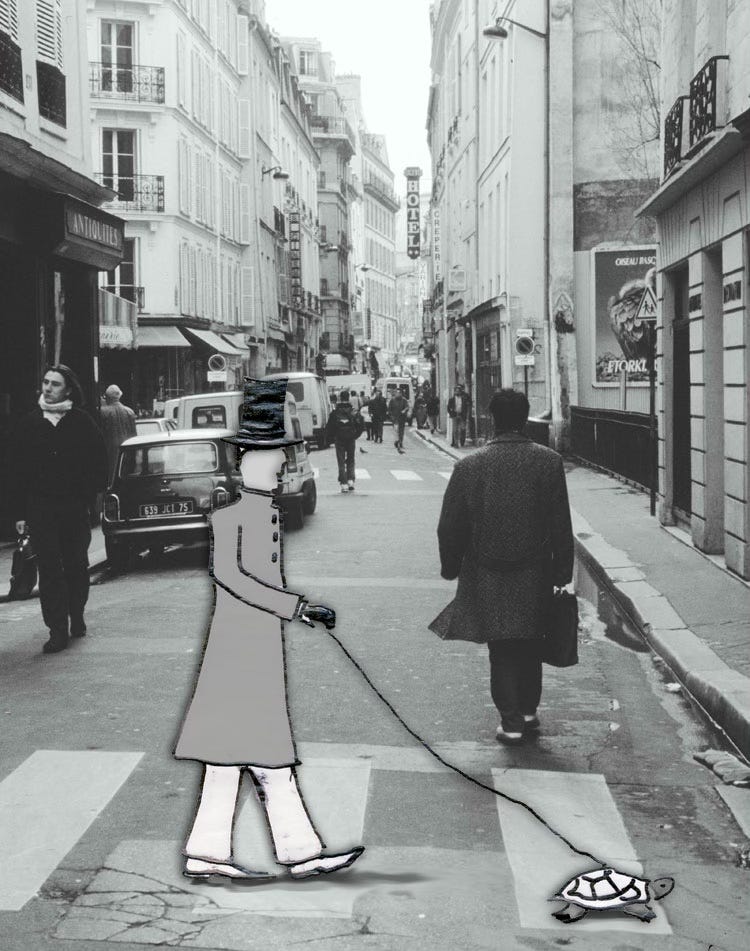
Those were all inspired from that project and that experience. But then looking back, I'm like, “these songs are so much lighter and happier and life-affirming. That’s evidence that I'm healing.” I [was] glad that was happening and I could kind of show anyone who listened to the first album and connected with it from a grieving standpoint. Hopefully the second album gave them hope that you can get back to normal, or to a better place. Just be patient and let yourself feel your feelings, and just try to push yourself to have trust that you will feel better, and just try to work towards it. Hopefully that message over the two albums came through.
Andrew: Yeah, absolutely. It definitely did. And like I said, listening to them back to back is just a really interesting experience - comparing the tone and the feel and the…just the sense that it gives you. To me, it came across super clearly, like "this is a person in two very different places in time.” So that was really awesome to hear.
You brought up the comment there, where you mentioned the pressure that comes with deadlines, or when you feel yourself being forced to get something done. I do think one of the things I appreciate about your work is how patient you are with releasing it. I don't get the sense that you're really chasing after every opportunity and saying “yes” all the time. There are some people I know who just have an incredible motor and can put out music at a relentless pace. It's hard for me to believe that your debut - I think, correct me if I'm wrong here, but “I'll Look For You In Others was technically your debut solo album, even though I know you've been making music for a long time before that.
How do you know when an idea is ready to be released? Are you holding onto concepts for a while, generally speaking, or do you work pretty quickly?
Patricia: I don't know. I don't think I have a set way of doing things. I have been keeping busy with music. For instance, right now, I'm working on a film project with my friend, Edward Pack Davee.
He's made a feature film; it's his third film, and I did all the soundtrack work. Well, no, he did a couple songs too, but I did a lot of the soundtrack work, and now I'm doing the sound design and doing some of the cleanup of the voiceovers. I'm always working on something in my studio, but it doesn't always come out as a release for people like to hear as an album. I try to work quickly, but sometimes it's hard to find an opportunity to focus on an album project because I'm busy with other things.
Andrew: Right.
Patricia: But I also feel like I do hit periods where I don't know what to say, and I don't want to just release something when I don't feel like I'm inspired or don't feel like I'm challenging myself, or interested [in it]. I don't have a compulsion that I have to release every year - and there's nothing wrong with anyone who does, but for me, I don't always have something to release every year or multiple times a year, but it's funny: I think if everything goes according to plan this year, I'll have two releases out because I'm hoping to do another one with Balmat this fall, but I have a lot of work to do on that one still. Hopefully I can get there in time.
But I guess that'll be my weird pattern of two albums in a year, every two years or something.
Andrew: Hey, if that becomes a trend, I'm happy to hear it. Lots of good news coming out of this conversation, so keep it coming.
And I should clarify too, yeah, it's not like you're just sitting still. Obviously, you've prepared and shared a ton of mixes, and you DJ on a regular basis as well. That's actually another question I wanted to ask you about, is the fact that you're clearly a major part of the Portland scene. I know both times we've come through on tour, we've played shows with you out there, and you mentioned the Variform Gallery, which - even though it's not there anymore, you did found that space.
You do work for Holocene out there. And I think I saw the other day you posted about a new event series that you're creating called Moment. And all this together - I'd love to hear your plans for that series, and what motivated you to create that in the first place.
Patricia: Well, it's not just me. It's a group of friends and there might even be more people coming into it, which would be great because, it's a lot of work to put on a show to be in the like the role of a promoter and it's not something that I love to do, but it has to be done in order to make - when you have a cool artist that reaches out and says, “Hey, I want to come play. Will you help me out?” Sometimes you have to do it yourself, and I'm happy to do that, but I always feel a lot of stress because I want the artists to get the best audience in Portland that they can get. So I'm always freaking out, like, “how can I get everybody to come out to this?”
But this, it feels good because this time with Moment, there's a lot of great people involved [like] Ajay Ravi - he's not on social media, but he worked at DubLab for a while as a manager. He was living in LA, but he lives here now and he was facilitating the Floating shows. He and Carly Barton - Carly Barton lives here and she's an amazing musician and designer and DJ, among many other things - the two of them were facilitating the Portland editions of Floating and those were really fun.
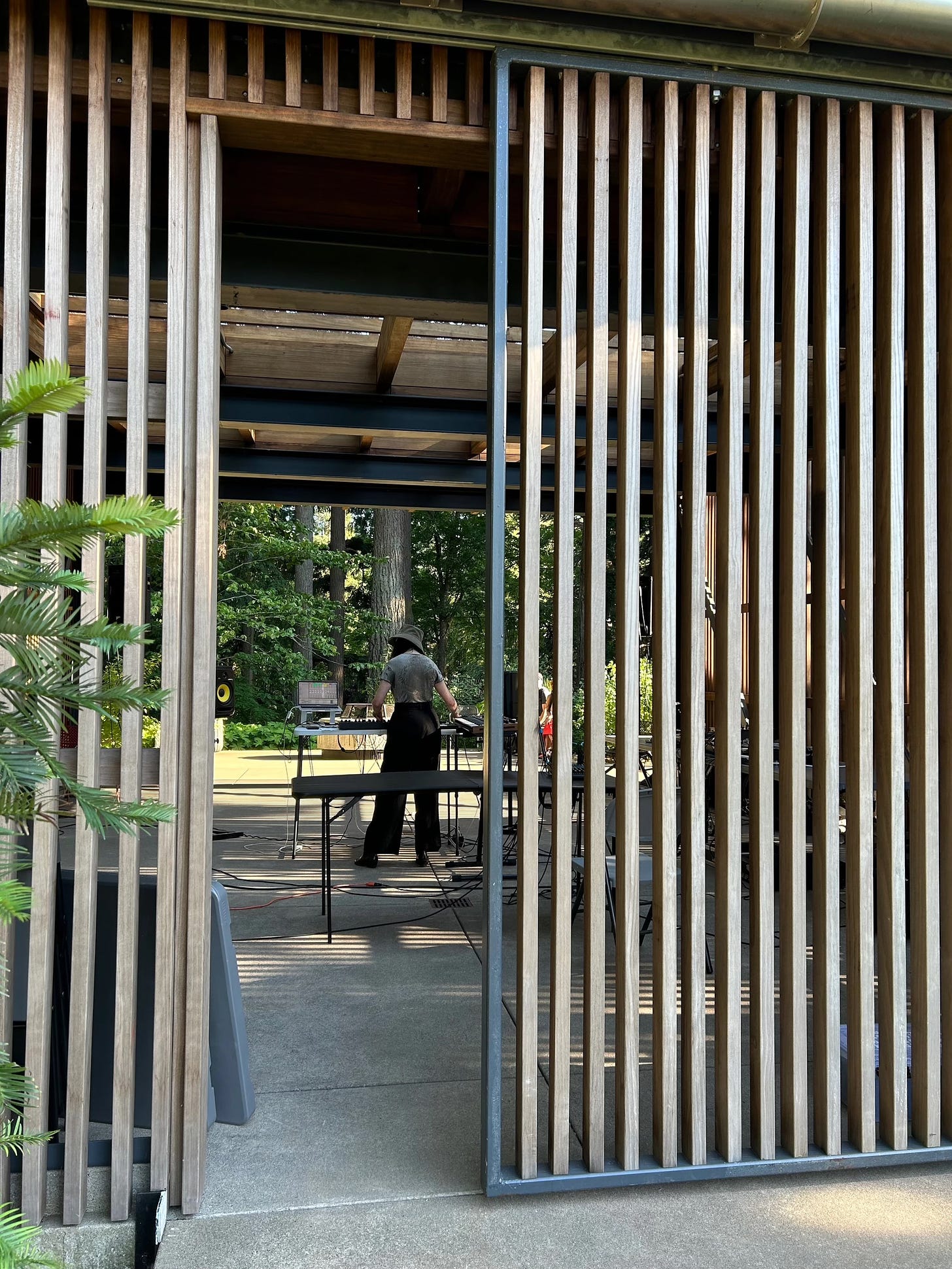
But Floating decided to not do any more shows outside of LA. Just because I think they were just spreading themselves too thin with everything going on.
Andrew: They did a lot. Yeah.
Patricia: Yeah. But we were enjoying those shows, and people were coming out. I think they always did really well, so I don't know why…it's sad that it couldn't continue, but we decided we're not going to let that stop us from doing these sorts of events. So, Ajay, Carly, me, Max - my partner - and a few other friends [are doing it]. It'll probably be a bit fluid, because like I said, it's pretty exhausting to put on shows. So have respect for your promoters, be patient with them. And if you're an artist listening, do your part to promote the show, because if you think that you can just show up and everyone's going to come - it doesn't matter how amazing of an artist you are or how much press you've gotten - there's a lot of work, especially in a smaller city like Portland, where the scene isn't quite as big.
Andrew: Yeah, I'm over here fist pumping and nodding in firm agreement. It's so, so true. It's such a difficult job.
Patricia: But hopefully, with Moment, we'll get to a point where people in this community can trust us to put on great events. Because sometimes there's an artist that you love and you're fully aware of what they're doing, but then the rest of your community hasn't heard of them and you really want to give them a show. So you have to do a lot of outreach. I think music journalism is amazing, and I don't ever want it to end, but sadly, I don't know how many people are discovering artists in that way, and sometimes you can't even get coverage for the artists that you really like, so you have to be the person in your community that gets people interested in another artist's work.
Hopefully, with enough shows, people will see, “Hey, I didn't know who this was, and I maybe won't know who the next person is that comes through, but those shows have always been really cool so I'm just going to go.” And that's kind of a big goal for the series, is that we can have adventurous bookings, interesting bookings, and not just rely on people who are already super famous. I'm happy to have those folks as well, of course, if we can afford them, but there's so many great artists that deserve a show in Portland, and I hope that either Moment or - there's also Megalith PDX; we're super good friends with them, and they have a space out of their shop which is like a record store/bookstore. They do shows in there as well. We consider them to be friends and hopefully we'll collaborate on some things. They're letting us use their sound system, so [that's an] indication of how connected and on each other's side we are. We're going to share dates going forward when we're doing shows so things don't overlap and compete, because we have a similar audience and they're our friends. We all want everyone to work together to make these shows go well.
Andrew: Oh, that's awesome. That's a great idea. I love the idea of promoters working together like that, and not setting up clashing shows and things like that, which, surprisingly, happens more than we would probably like to admit.
But the scene out there in Portland, I mean, it's so cool…with what you're starting now in Moment, and I know Megalith is awesome. My friends have played some shows with them before. And there's also Beacon Sound and…
Patricia: Yeah, Beacon Sound is part of Megalith.
Andrew: Okay, are they connected?
Patricia: Yeah. Andrew Neerman is Beacon Sound. And then Bob Ham, he's a music journalist. And he also So there's two record stores within their shop, and so it's Bob Ham and Andrew Neerman's record stores together, and then together those two are also Megalith.
Andrew: Ah, okay. Gosh, yeah. I learned something new today. I didn't even make the connection initially. That's great.
Yeah, but I mean, to your earlier point, it takes a village to make that stuff work well. And I admire you for taking it on, because it's also one of my least favorite things to do, is just hosting in general. I always get anxiety about "are people having fun? Are people enjoying this?" There's all kinds of work to do around it. Really looking forward to see what you guys are able to build with that.
And that brings me to another question that's sort of related to that. From your perspective, I'd love to hear how you think things have changed, pre-COVID versus now. I have personally seen, like as a person performing music, it seems like opportunities and venues and organizations like that are becoming fewer and far between. And I wonder if you feel the same way, too, comparing the 2019 performing experience with the experience that we have today: are you setting up more shows? Are you finding it more difficult? What's your perspective on the state of play for live music in general at this point, especially now that you're going to be a lot more involved in setting it up?
Patricia: Wow, I don't know. It's hard to say. I think with the type of music that I like, and the type of artists that I'm usually helping set up shows for, it's already kind of a small niche scene, and it doesn't have a big mainstream appeal, like maybe a rock show or like a clubby dance party or something. So I think that, inherently, it's gonna be challenging because it's already kind of a small scene, but the trick is - but they're in Portland though. There's a lot of people who do like this, and so it's just a game of making them all come out of their hiding in their comfy homes.
It rains here a lot and can get cold, and people…I don't know, I think in the summer there's a major transformation here, because most of the winter it's just really cold and yeah, well, maybe not really cold because on the east coast it gets much colder…but yeah, it's cold and rainy and dark, and people just don't really feel motivated and just stick at home. There's a lot to keep people entertained at home, and that's the thing. I think before, home could be a really boring place; you couldn't easily access movies and great TV shows and video games and all these other things we're competing with. And I think maybe the economy hasn't been that great either. It might be tough for some folks to justify [shows] when food and fuel and other expenses are going up. I don't know…It's hard to say.
I've always found it challenging to promote a show, and it's not a role that I like to put myself in. Not because I don't want to do the work, but I always fear that I'm going to let someone down if I didn't get people to come out, and that's a terrible feeling to have. It's like a feeling of failure, and I just blame myself for it. But I do my best. I think part of it is that there's so many artists here, and not too many people really want to be in the spectator role - they want to be participants, and so I think it's important to find ways to engage more people and make sure, with the programming, that you're being inclusive and bringing in lots of different artists from different scenes.
I don't know, I think it's always been tough. It's weird though, because I remember when Ambient Church has happened here a couple of times, and those shows are always packed full of people, like hundreds and hundreds of people - maybe 800 people or something. And I'm like, “where are all these people at? If they like that show, they would definitely like these other shows, but how do we connect with them? How do we get them to come?” So it's just this mystery. Ambient Church - I don't think they're around anymore; I'm not sure what's going on, but they did a big Kranky two-day festival back in, I want to say 2018 that was very well-attended.
And of course, Kranky is a legendary label, and there's a lot of Portland artists that are part of it, so I think that that was a major factor in why it did so well. They've had some other events, as well, and they've always had really big headliners, but then sometimes you'll see similar artists at a smaller venue - still a decent sized one, like maybe 300 capacity or whatever - and they'll still struggle to sell 50 tickets for that.
So it's just like, I don't know…I don't really go out that much anymore. I think that if I were more of a person about town, maybe I could rope people in, but I'm busy at home working on things and I'm sure a lot of other people are too. I try not to fret about it, and just scale things to a more reasonable or manageable level and hope that the artist's expectations are met, and maybe tell them in advance what to expect here. And hopefully when they come back again, those same people come out plus more people.
Andrew: Yeah, absolutely. It's just so interesting to me…I mean, because out here in Philly, I can just start rattling off at least a dozen venues, promoters, press outlets, anything to do with the local scene that I knew and that we took advantage of from 2016 to 2019, like that kind of general timeframe, and that infrastructure just doesn't really seem to have made it through the last couple of years. It's such a weird and difficult place to be performing in now, after everything that happened. So I really admire anyone taking the initiative to get something going and be committed to growing it like that. It's really inspiring to see and to hear about, and honestly, it makes me think about, “what could I do here in this scene to make it better and to make it reflect what I want to see as well?” So, just like I said before, super curious to see how you guys are able to grow that.
Patricia: One of the things we're trying out with the show is the space that we're renting for the show on March 31st. It's called Leaven Community Center, and it used to be - I think it's still kind of a church, but I think there's no religious expectation at all, and it's split into two spaces.
There's a sanctuary where the music will happen, and there's another room where there's tables, and it seems like a place where people can sit and have talks and eat snacks and things. We're going to be setting up a pop up shop with Tone Poem, which is a really awesome record store that's very well curated with interesting ambient, new composition, and experimental records - very well curated - and he also has a really nice selection of Japanese tea, other books, and cool things. He did have a physical store, but at the moment he doesn't, so he's been doing some pop up shops. He's going to do a pop up shop and people know, “oh, he's going to have amazing records.” So, there'll be more to do than just see a show.
And then this woman, Mio Toyoda, who recently moved to Portland within the last few years from Japan, she makes this really amazing jewelry out of sea glass that she finds, and it looks fantastic.
She’s been looking for places to set up, and she's been coming out to cool ambient shows - she knows Chihei Hatakeyama from when she was living in Japan; it's really cool. So she's gonna set up a shop, and I don't know…that could be fun for people at the show, because I think that those are things that that same audience would be interested in, and it brings in another community. I think it could make it more fun, so we're gonna see if that ends up being a good addition to the shows to make it something new and help other people. I mean, they're both involved in music stuff, but this is just like a side venture, I guess. The same kind of people would probably love their wares as well.
Andrew: Yeah, that's great. Anything that's different from just the typical, “show up at a bar, buy some drinks, listen to music, and then go home” thing…yeah, any kind of extra effort to make that experience different or unique is really appreciated, especially these days. I think people - to pull them out of their house, I think you've got to be willing to offer something different like that, so that's great. I'm all for that.
I'm gonna pivot somewhere completely different, so bear with the whiplash here, but I've always been fascinated by [origin stories] - especially people making ambient music or experimental music, this isn't something that you grow up with. Most people have the experience of: they grow up, and in elementary school or middle school, they're introduced to music and they play an instrument in a classical setting, and there’s that kind of progression over the years. I grew up playing jazz, and then eventually made my way into really heavy and loud post rock, and then I finally landed on this ambient stuff after a long time.
You have a history playing much more up-tempo, synth pop music, and I love hearing how people come to the ambient space, because it's usually from all over the map. I can't ever really predict how it happens or when it happens for people, but I'd love to hear how you made your way into the work that you're doing now. Were there any big takeaways from making that kind of synth-driven music before? And how did it evolve over time into what you're doing right now?
Patricia: Well, I'm not quite sure how I got into making ambient music. I think it's been something I've always liked and listened to, but it wasn't the kind of music that I wanted to make back when I was making synth pop. I think I was younger, and I was more social and more energetic, and I wanted to be at those kinds of events: lots of people dancing, loud music…and I don't know, at some point it just kind of got a bit much for me. It's definitely the kind of music that works well in a bar setting, and I've never been - I love having a beer or two, like a really nice beer or two, but the whole culture of partying and drinking a lot and all that is…it's not anything I'm interested in.
And I think in some ways, for that kind of music, that's sort of the vibe that's expected, and I just didn't enjoy that environment very much anymore. I don't really like going to bars. I've become really sensitive to sounds, and I think I just decided to let that be okay and started exploring. I think before, I just would try to deal with it, but then I'm like, “why am I making myself do something I don't really like anymore?” And it could be weird, because you know, you have friends in a scene that are very much tied to a specific type of scenario, and when you're not really there anymore, those people can kind of disappear, and that could be a slightly painful experience. But sometimes you just grow differently, and that's what I did.
I've always liked music that was a little bit more on the introspective side. Krautrock and things like that, I guess, was where I came from when approaching ambient music. I've always loved synthesizers, and I guess one day, I started doing things in my studio that…I don't even know if, technically, my music qualifies as ambient. If you really want to pull apart certain definitions, it probably doesn't, but I just kind of get called that by people and it's easier to just say that than try to figure out what it really is, because I honestly don't know. I just make music, and I tend to have a lot of friends who also make ambient music, or maybe make true ambient music, and it's just kind of a reflection now of where I'm at in life. I like the sensitivity that that sort of music tends to have about what's going on internally and externally.
But yeah, I like melody a lot, and I think that that might be something that maybe defines what I do. Some folks are more…they'll have the drone, but maybe it's like more of a steady path, whereas maybe I'm a little bit more…on the [melodic] synth-pop side of that spectrum. I don't know. It'd be interesting to hear how different people perceive it.
Andrew: Yeah, it's sort of an evergreen question for me, and I love asking people about their progression to this general space and also how they would describe their music, because as interesting a genre as ambient can be, I still don't really know what is and isn't ambient. I don't think any of us know. You can call it anything you want; people are going to recognize it and appreciate it for whatever it ends up being, but it is really interesting to hear from the people who make it: what they think about it, and how they come to it or approach it or label it. It's always different, so I love hearing different takes on it.
That brings me to one more question that I wanted to ask you about. You do have that history making synth-pop in previous bands, but you've also done some work doing sound design and preset creation for Novation, for instance, and I know that you also do other kinds of custom sound design work as well. I'm wondering how you got into that to begin with. Just as someone who doesn't know anything about that world: how did you arrive to that work that you do in sound design, and what kinds of experiences brought you to that point?
Patricia: Well, I really have Ricky Tinez - do you know who I'm talking about? To thank for that.
Andrew: I love his stuff on YouTube. Yeah.
Patricia: Yeah. We were following each other on Instagram - this was probably around 2018 - I was making a lot of videos on my Instagram of just me playing around with my synths, and at the time, I didn't have that many synths. I had the Make Noise 0-Coast and Alpha Juno, and maybe some other things, like another monosynth…I'm trying to remember what it was. I guess he was paying attention. A lot of times you're following people and they're following you, but you have no idea if they're even noticing anything. But he reached out and he asked if I would be interested in working on a sound design project.
At that time, I didn't really think of myself as a sound designer, I just thought of myself as a musician that uses synthesizers. He told me what it was, and it was for Peak: they were doing an update and it had some new features, and they needed some new sounds so he invited me to be one of the designers. I was just amazed that I was considered for that, so yeah, Novation sent me the synth and I got to work. I guess it went well, because they asked me to do Summit after that. I was the first person outside of the company to get the Summit, as far as I know, which was mind-blowing because that's such a cool synth. I still use it all the time.
And yeah, I guess I’m a preset designer. Now you can find me in the manual.
When people get a Summit and it has sounds already in it, a good amount of those are mine. I can't believe it. It's amazing. Hopefully people are having fun with those.
Andrew: Yeah. Two really popular synths, too, so your sounds have probably traveled quite far at this point. It's really cool to think about.
Patricia: Thank you.
Andrew: Yeah. Well, that's really interesting. I'm always curious just how - because I see people doing that kind of work, and the origin story is really, really interesting to me. It's fascinating to hear how you get into that in the first place, because it's not a very common line of work. There's only a limited number of people doing that.
Patricia: I'm sure if you reached out to a synth company if you feel really passionate about the synth…I feel like once you've done one project, then people are aware of you and they might want you to come back and do something again. So I don't know, it doesn't hurt to reach out and see if they'd like it.
Andrew: I gotta ask Elektron to give me a Octatrack Mark III whenever that's coming. I'll jump on board there for sure.
Well, we've covered so much ground here already, but just to kind of leave it, I'll look forward a little bit: what's next for you in terms of your music-making process and style? Where do you see your sound evolving at this point? I know you mentioned an album coming up on Nite Hive that's focused on bird calls and that more natural field recording aspect that we were discussing earlier. Do you see yourself and your music evolving any other ways, too? Is there anything that you haven't explored yet that you want to in the future, going forward?
Patricia: Well, I'm going to go on a really cool artist residency in June to the Rocky Mountains, and it's going to be on this biology lab that is focused on pollinators and how climate change is affecting the times at which plants are blooming. I'll be helping do some field work, but I'll also be free to do as much field recording as I want and learn a lot about nature, and it's pretty remote. So I'll be there for almost a month. I feel like it'll be a really unique experience, and I have a feeling that that's going to inspire me.
I would like to continue on with my focus on nature. It's hard for me to ignore how important it is for us to change what we're doing as human beings on this planet to try to protect the biodiversity that we have, because the way things are going, so many species are going extinct. I feel like my music has to have a purpose right now, whereas previously I didn't think that it needed to be anything other than aesthetically enjoyable. For some reason, that isn't enough for me anymore, or at least at this time in my life or this period that I'm in, and I think that's a good thing. I don't at all have any negative feelings for folks that aren't having some kind of lofty idea behind what they're doing, and I still try to make what I'm doing fun, but I think it makes me feel better because sometimes I feel guilty about working on music when I could possibly be doing something that's more solutions-based. Maybe this is my way of creating awareness, like doing little public service announcements in a musical way. I want to make it fun.
I got some new field recording equipment - I got a parabolic dish, and so I'm planning on utilizing that on this trip. And something I haven't really done so much is processing the field recordings to make them musical instruments. Maybe it won't be something that I enjoy so much, because I do love my synthesizers and I'm not really feeling a need to replace them. I got the UDO Super Six and that's been heavily featured on the new material that will be coming out. It was used so much on the soundtrack that I'm working on, and I cannot wait for that to come out because the film is so beautiful and inspiring. I think it really brought some music [out of me] that I'm really proud of.
That experience in the in the woods in the mountains is going to feature again in my music - nature is going to come back. I guess I'm a nature musician now that loves synths.
Andrew: Two two great things coming together. I can't wait to hear the results of that. Sounds amazing. Look forward to whatever, whatever comes.
Well, thanks so much, Patricia, for this conversation. I really enjoyed it. And I love hearing your perspective on all this, so thanks so much for making the time.
Patricia: Thank you for having me.




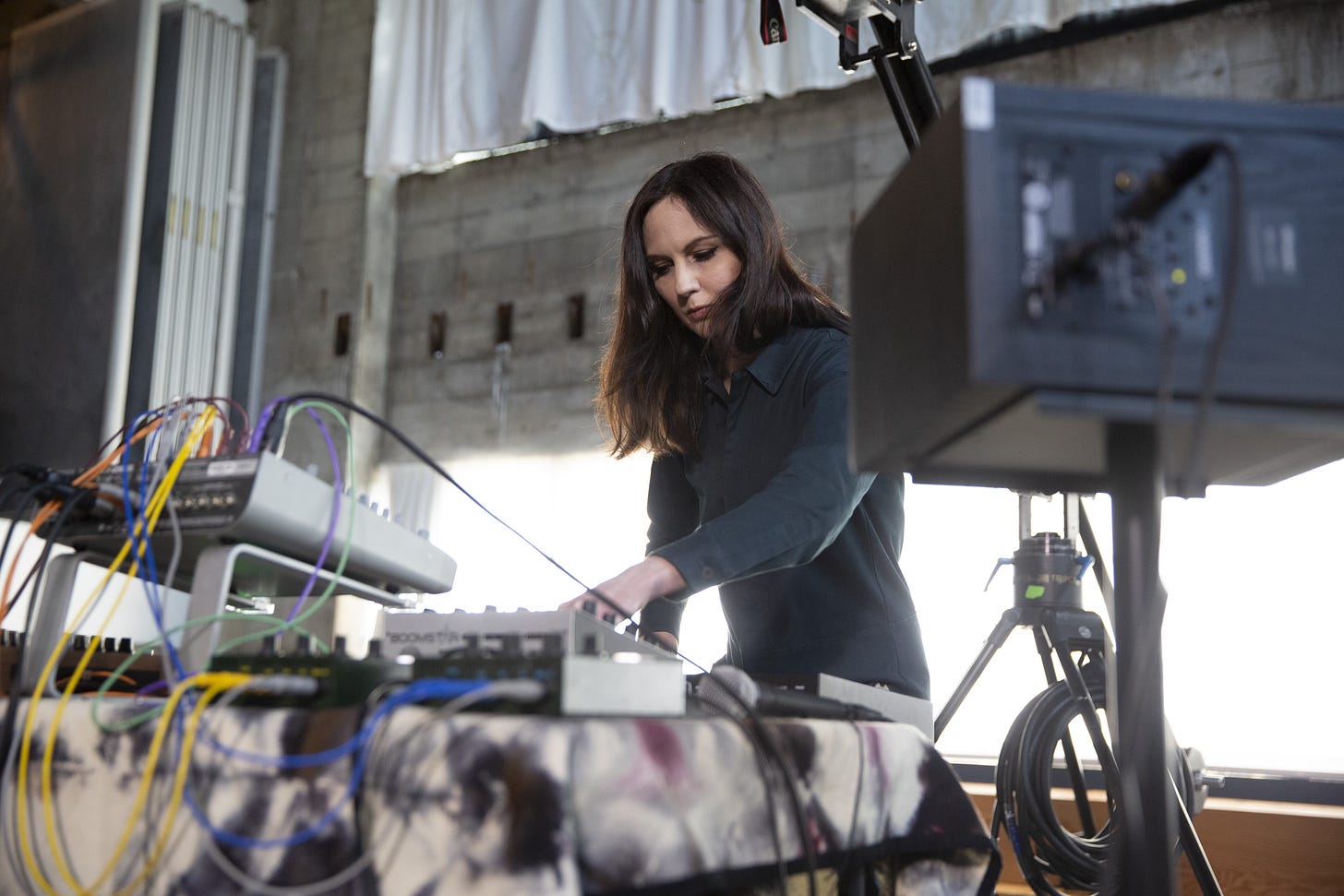
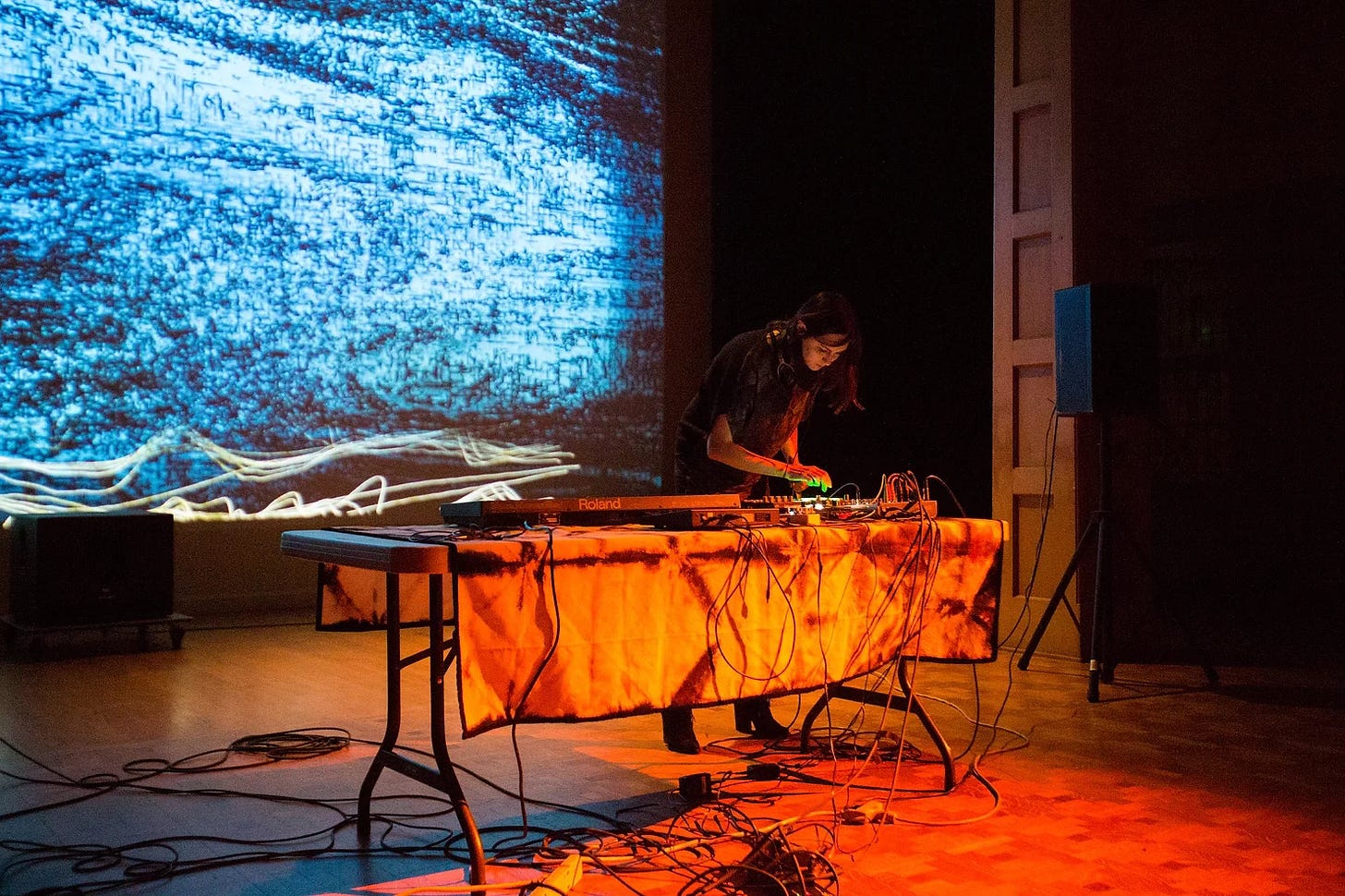
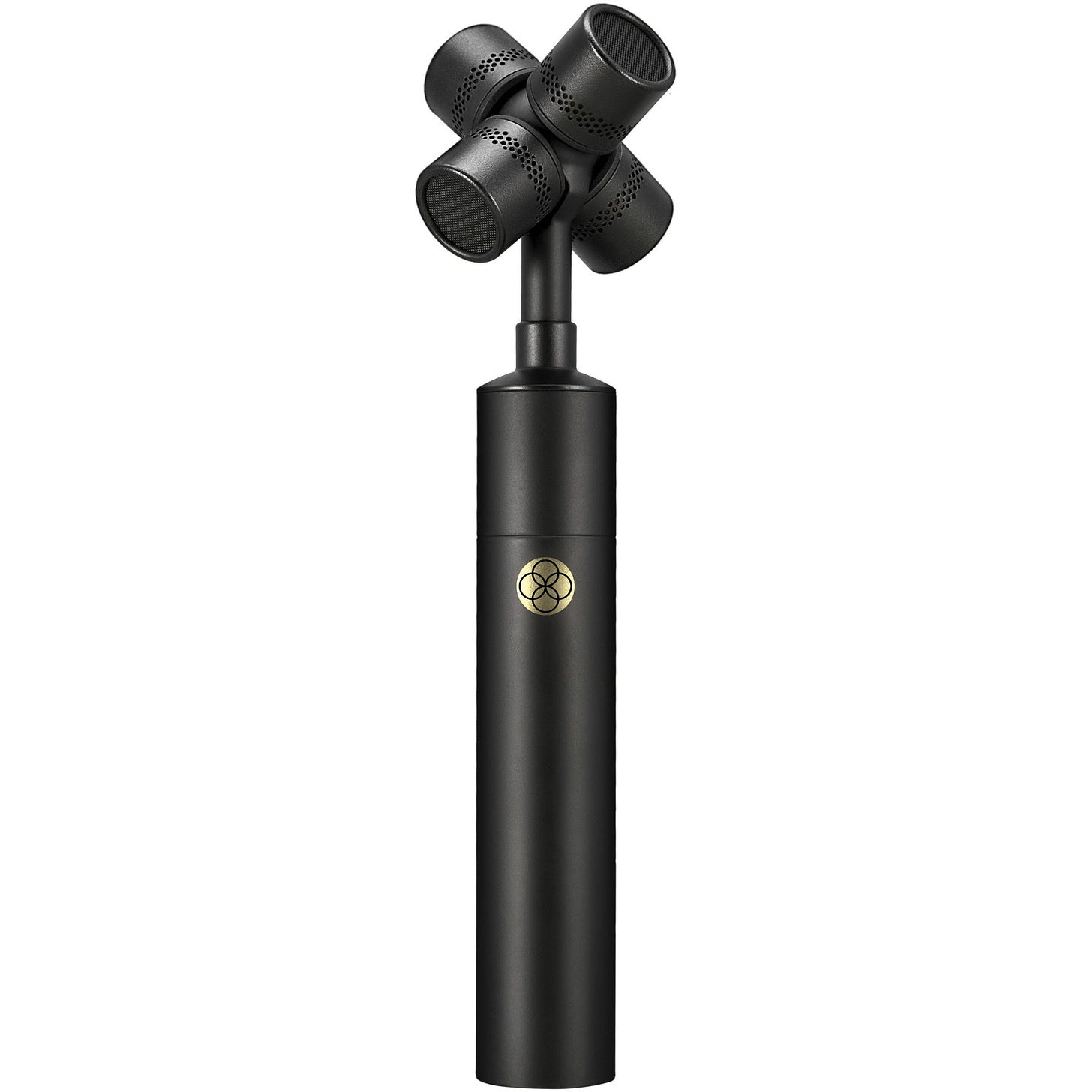

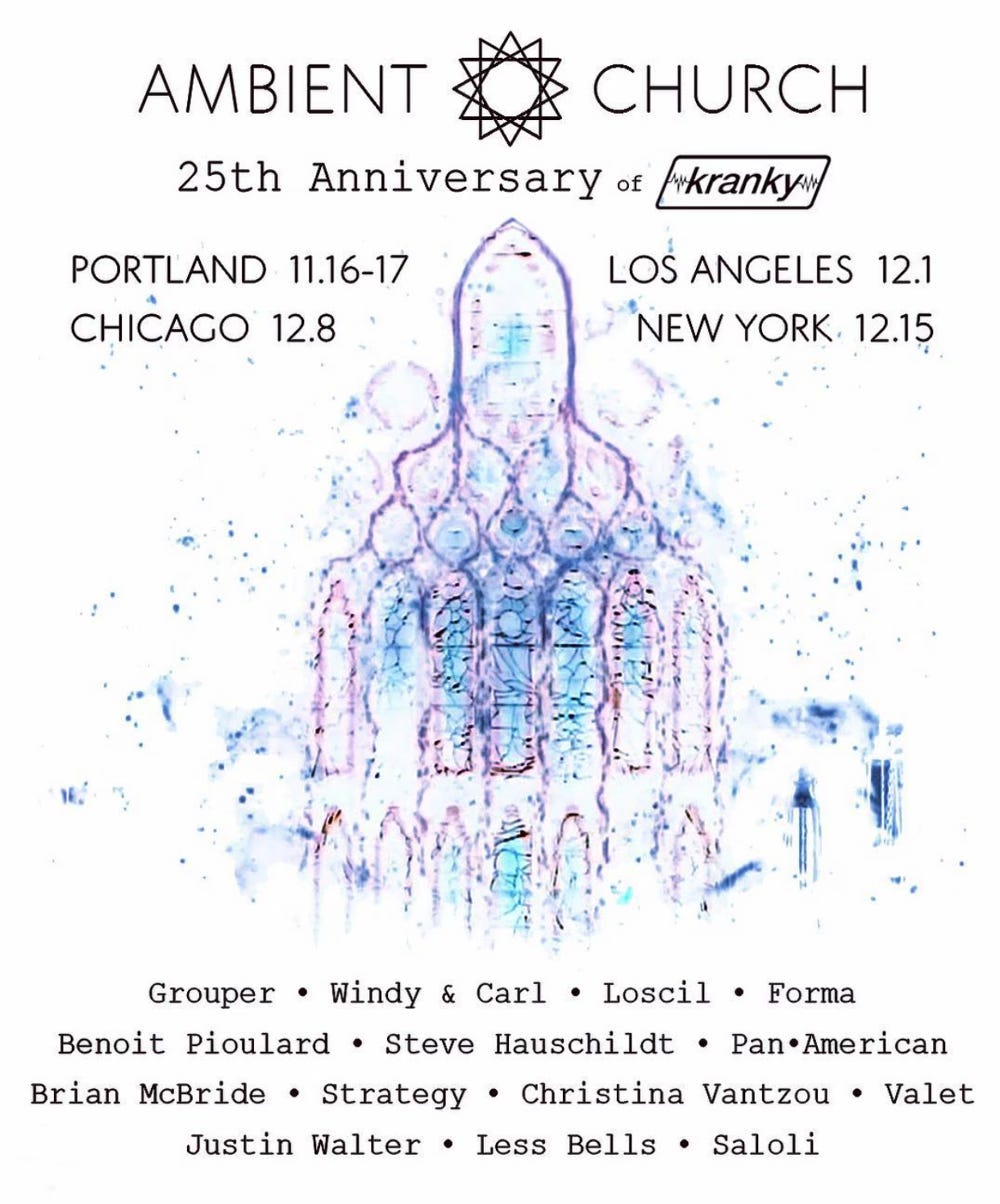
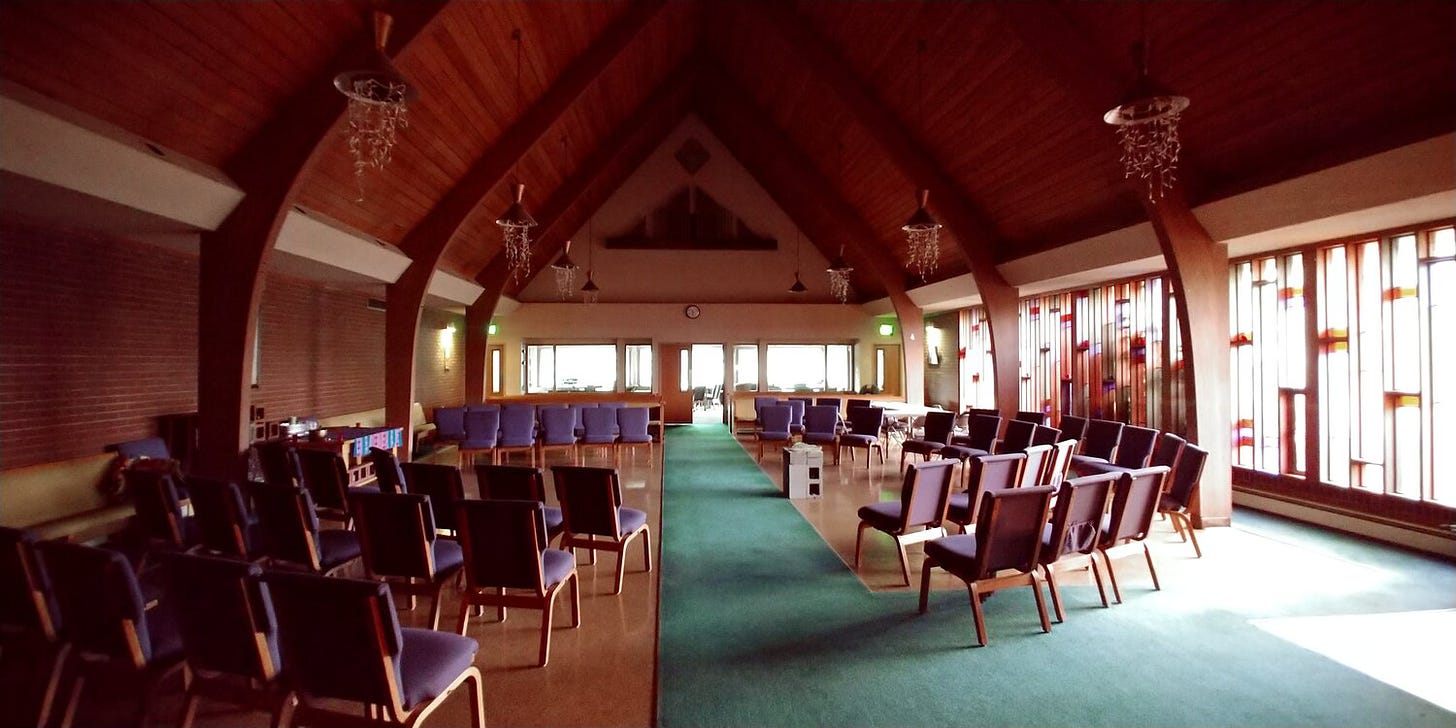
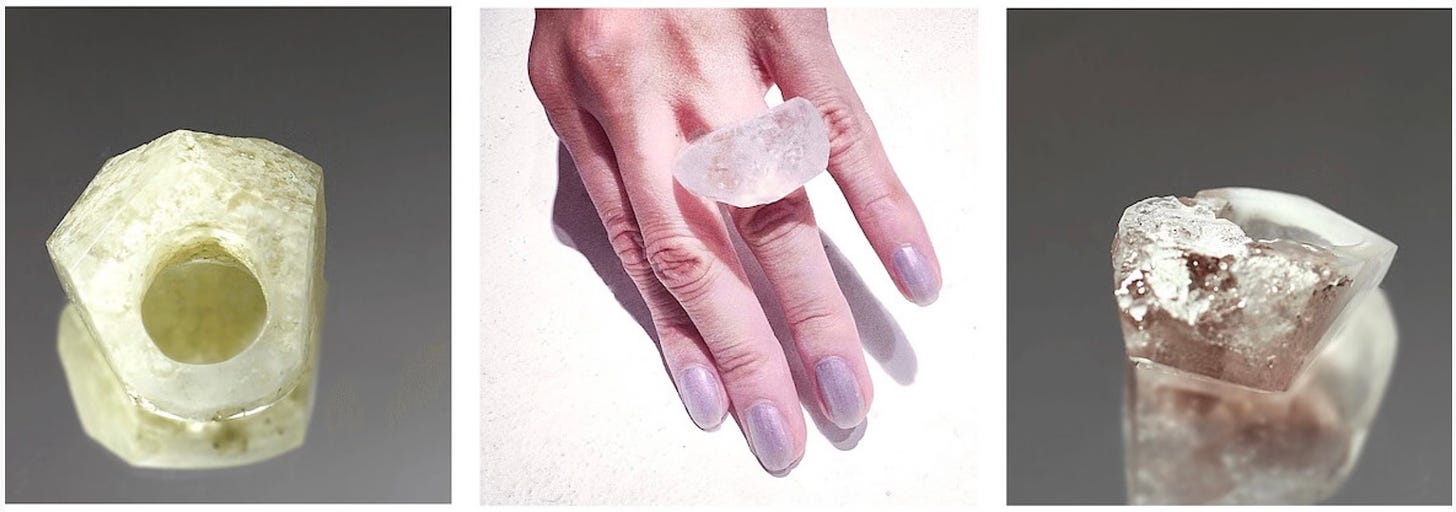



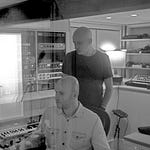
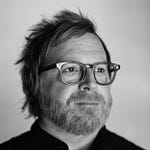

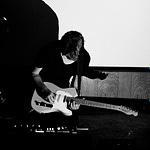
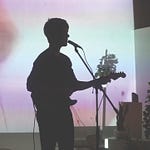
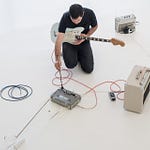
Sound Methods 006: Patricia Wolf